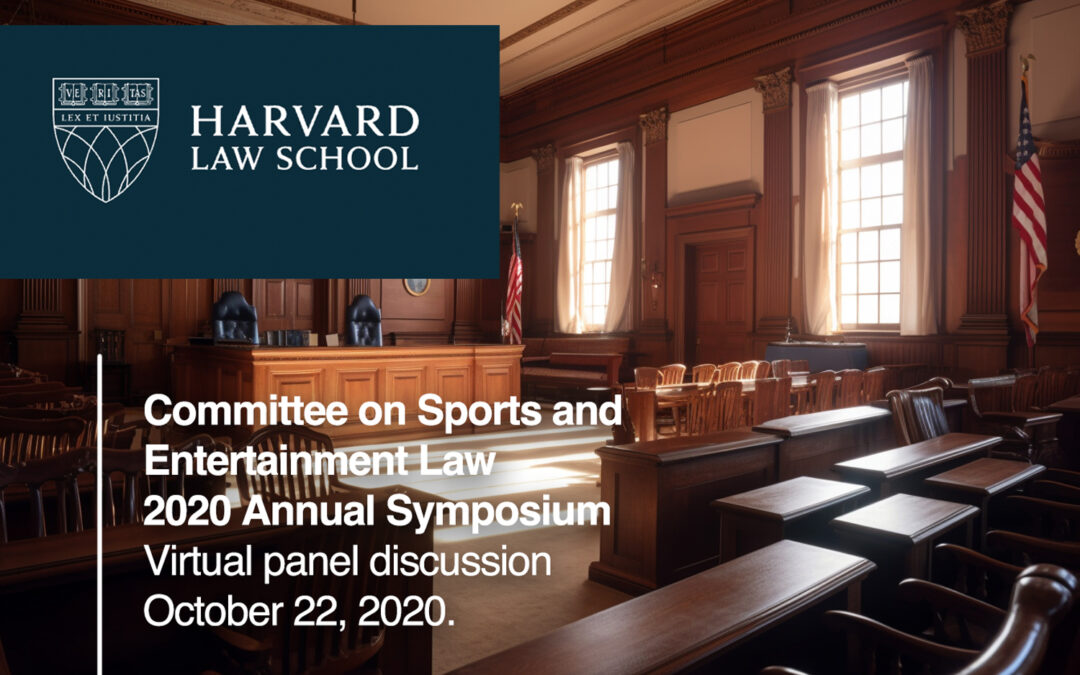The Harvard Law School Committee on Sports and Entertainment Law 2020 Annual Symposium held a virtual panel discussion on October 22, 2020.
Sports lawyer and athlete advocate Greg Tarone appeared virtually at the annual Harvard Sports Law Symposium on October 22, 2020, after months of delay due to the COVID-19 pandemic.
The Georgetown Law graduate has represented all levels of athletes as a lawyer, agent, and manager. Currently, he represents former soccer player Noriana Radwan against the University of Connecticut, her former coach, and the financial aid director for illegally taking her scholarship away in the middle of the academic year. The case was filed in the U.S.. District Court for the District of Connecticut (Case No. 3:16-CV-02091), and the decision for appeal of summary judgment is pending in the U.S. Circuit Court of Appeals for the Second Circuit in New York City. The case can be followed on Facebook at “Noriana’s Voice.”
Since 1986, Mr. Tarone has counseled amateurs and professionals, writing and lecturing about legal issues, and networking in support of athletes’ rights ripe for necessary litigation. He has also been an agent and manager for LPGA, NBA, and Olympic athletes, all involving advertising, public relations, endorsements, sponsorships, and regulatory compliance.
At the Harvard Law virtual symposium, he participated in the panel discussing the topic”The NCAA, Amateurism, NIL Rights, and California’s ‘Fair Pay to Play Act.’”
Mr. Tarone commented that, in view of the increasing demand for younger and younger athletes being recruited for college and professional careers, a national registry of agents must be established by federal legislation offering the same level of protection for scholastic athletes that has been provided by state legislation for collegiate athletes. Since representing the members of The Florida Bar in the drafting of Florida’s Athlete Agent Registration Law in 1989, Mr. Tarone has criticized that law for excluding scholastic athletes like all the other state athlete-agent registration laws. He predicts it will take five years but it will have to be established in view of the competition for name, likeness, and image financial opportunities, and personal promotion under the developing law-making amateurism a diminishing concept.

